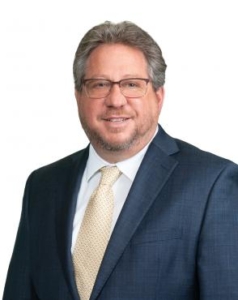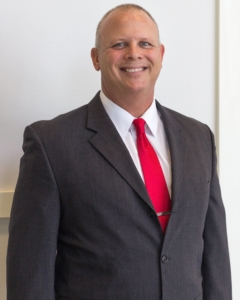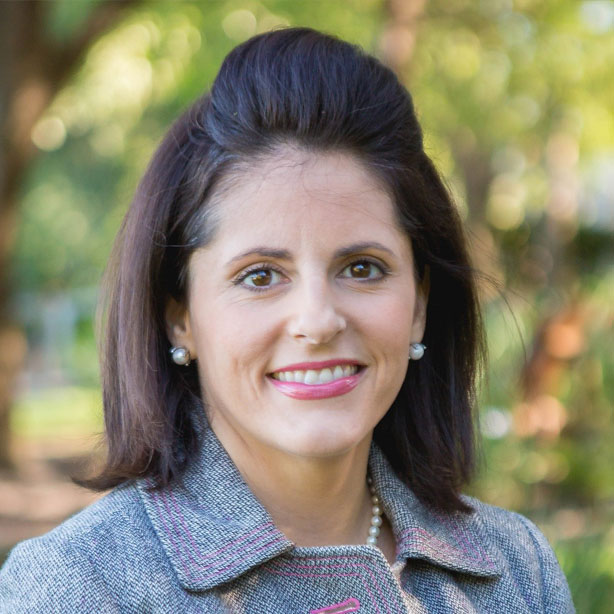The Orlando Law Group
Orlando creditor claims in probate lawyer
Sorting through a deceased family member’s debts, assets, and wishes can introduce a range of challenging emotions, but work must be done to ensure their affairs are in order. So don’t be surprised if a creditor contacts you following your loved one’s death – creditors want the money owed to them, even if the person who incurred the debt has passed away.
An Orlando probate attorney can help you meet the demands of closing down your loved one’s legal matters while coping with additional pressing life matters. We’ll make sure your loved one’s estate is managed appropriately while we address any creditor claims in probate. Keep reading to learn more about creditor claims in Florida, then give us a call at (407) 512-4394.
What is a creditor claim in Orlando?
Creditor claims are notices or claims that any individual or business files against the estate of a deceased, stating that the deceased person owes them money. Handling these claims correctly and providing Florida probate law notice to creditors is a requirement of the representative of the estate. An Orlando creditor claims in probate lawyer with The Orlando Law Group can guide estate representatives through the process to ensure creditors are notified within the legal time limits.
Creditors can make both formal and informal claims against the estate. The estate representative must review and pay valid debts. Informal claims are often sent as a standard bill or invoice and are paid by the estate representative.
Formal claims are filed in the county of probate responsible for overseeing the deceased’s estate.
How can an Orlando creditor claims in probate lawyer help me?
The closing of estates can range in complexity. First, an Orlando creditor claim in probate lawyer can review the will if the decedent leaves one and determine if summary administration applies.
Pursue summary administration
Summary administration allows for a faster probate process for estates valued at less than $75,000 in probate assets, while formal administration is required for estates with more assets or estates where no will was written, or debts and lawsuits are a potential complication.
Notify creditors and follow appropriate timelines
Representatives of the estate are required to make formal notification, giving creditors the chance to discover the decedent’s death, allowing them to participate in the probate process and settle debts. An Orlando creditor claims in probate lawyer from The Orlando Law Group will assist with lawfully notifying creditors and following the appropriate timelines.
Additionally, our team will address any litigation involving the estate by drafting petitions and filing the correct documents. Our role is to seek out the best interest of the estate. When possible, we strive to work with clients in trust and will plan to protect estate assets by keeping estate plans updated, assuring that beneficiaries have protection from probate creditor claims.
What should I do after receiving notice that a creditor filed a claim?
As the estate’s representative, it’s up to you to review any received claims to ensure they are valid. Valid claims will be settled out of the estate’s assets. The representative is also allowed to dispute any claims that are invalid or unverifiable.
Duties of a personal representative after receiving notice of money owed
The personal representative’s duties not only include paying creditors but also preventing creditors from filing claims and lawsuits against an estate long after the estate owner’s death, providing legal timelines to work within. The personal representative is responsible for documenting known and potential creditors and filing the information with the court.
Providing due notice
Publication of a notice to creditors must occur twice in the county where the deceased resided. The publications should be scheduled for one week apart, and proof of the publication should be submitted to the court within 45 days of the first publishing.
The estate representative is also required to contact each creditor that is known to them, such as the power company or a lending establishment.
The published notice to creditors must contain the following information:
- The deceased’s full legal name
- The court and the address responsible for probate
- File number assigned to the estate probate
- Date of first publication of notice
- Contact information, including the name of the estate’s personal representative
- Name and contact information for a personal attorney representing the estate, if this is applicable
- A statement to creditors specifying that a claim can be filed within a certain period of time
Prioritizing debts
Florida statutes define the order of payment of expenses and obligations of a loved one who is deceased. These expenses are broken into classes.
Class 1
Costs and associated fees with administering probate and compensation for personal representatives, including attorney’s fees.
Class 2
Funeral and burial expenses, not to exceed $6,000.
Class 3
Any debts and taxes owed to the federal government followed by unpaid court costs, fines, and fees owed to the state.
Class 4
Expenses accrued by a loved one for medical and hospital expenses and caregiver services in the last 60 days of the most previous illness.
Class 5
Family allowance.
Class 6
Balance due on court-ordered child support.
Class 7
Debts that culminate from the continuance of a loved one’s business, only to the extent of the business’s assets.
Class 8
All other claims, including founded judgments against the deceased, that occurred during their lifetime.
Paying the debts of a deceased loved one can be a complicated process, and following the order prescribed by the law protects the estate and beneficiary’s interests. Our Florida creditor in probate attorneys understands and can assist with payment verification and scheduling. Never let this overwhelming task become a burden when The Orlando Law Group can simplify the process and guard your best interest.
How do I object to a claim in probate?
Disputing a claim will require you to file a notice of contest with the appropriate court. Creditors who disagree with the contestment then have the opportunity to file a lawsuit against the estate. You may object to a claim if improper evidence exists to substantiate the claim, unlawful debt collection practices were used, or any non-probate assets are linked to the debt.
How do I file a claim against a deceased person’s estate?
To prevent a claim from being dismissed by the courts, following these steps will ensure the proper filing of a claim in Orlando. If probate has not been opened by an estate representative, can a creditor open probate? Yes, a creditor can work with the probate system and open probate if an estate representative has not done this.
Locate the correct probate court
Locating the correct probate office may require research to determine the appropriate court. Probate will occur in the county where the deceased lived or owned property. If notice of probate was presented in a publication, the probate court in charge of the deceased’s estate should be named with the correct address.
Confirm the debt
Proof of debt must be presented. Various documentation can serve as proof of debt, and petitions without proper documentation may be dismissed. Common types of confirmation of debt include:
- Previous payments
- Contracts
- Promissory notes
It is vital to review all forms of confirmation of debt to ensure payment.
Fill out the claim form
Claim forms for the correct county (Orange County probate, if applicable) should be completed online or in person. You will need the probate case number and documentation about the debt to confirm the obligation exists. Creditors may be required to provide an explanation of the debt and offer proof that the loan balance was not satisfied before death.
Submit the form and retain a signed copy to obtain access to the files about the estate.
How long do I have to file a creditor claim in Orlando?
Creditors are subject to the following deadlines to file a creditor claim in Orlando probate. The deadlines are categorized by known or reasonably ascertained creditors and unknown creditors.
Unknown creditor claim deadline
Publication of notice of probate is considered sufficient notice. Unknown creditors have three months from the date of this first publication to file a creditor claim.
Known or reasonably ascertainable creditor claim deadline
Creditors who are known or reasonably ascertainable have the right to be directly notified of probate proceedings. Claims must be filed:
- Within 30 days of receiving the notice to creditors
- Three months following the first notice of creditors is issued
- Two years after the date of death, if you are a proven or reasonably ascertained creditor who missed the notice to creditors
Our Orlando creditor claims in probate attorney is ready to help
Failing to follow the laws of probate and creditor claims can result in burdensome legal challenges. Some assets are not subject to probate, while others are non-probate assets, offering protection to the beneficiary’s estate. The Orlando Law Group offers free consultations by scheduling online or calling (407) 512-4394 to discuss your needs.
We understand the responsibilities of estate representatives, and we strive to solve the problems you face and answer any questions regarding creditor probate claims.
Commonly asked questions about creditors in probate
It is critical to understand what assets creditors may have access to for payment.
Does Florida land trust avoid probate creditors?
Florida land trusts make it more challenging for creditors to go after your assets. In the event of a lawsuit, creditors cannot pursue you. Florida land trusts offer privacy, allowing individuals to keep personal asset information confidential.
What happens if I do not serve notice to creditors?
Failing to notify creditors properly may extend their deadline for filing a claim.
What are non-probate assets?
These assets do not have to pass through probate. There are avenues to change probate assets into non-probate assets to ensure their protection after death. Additionally, property deemed as the deceased’s homestead is a non-probate asset and is also exempt from creditor claims.
Can a creditor go after non-probate assets?
Are non-probate assets subject to creditors, and can a creditor go after non-probate assets? Non-probate assets are often not subject to creditor claims. But to ensure their safety, it is best to seek advice from an Orlando creditor claims in probate lawyer, as there may be exceptions to this rule.
Retirement benefits require a designated beneficiary, making them a non-probate asset. These retirement accounts can include 401(k)s, IRAs, and retirement savings accounts the deceased may have established. Other assets that are jointly owned are also non-probate assets, and irrevocable trusts may not be subject to creditor claims.
Life insurance policies are considered non-probate assets that ensure financial support to loved ones after the policyholder’s death. Automatic payment of the policy amount will go to the specified beneficiaries. Also, some bank accounts have a transfer-on-death or payable-on-death policy, providing protection from creditor claims.
Discuss your case with us
or call us
(407) 512-4394




 Jeffrey W. Smith
Attorney
Jeffrey W. Smith
Attorney

 Dan Sanders
Attorney
Dan Sanders
Attorney
 Wendy Hernandez O’Donnell
Attorney
Wendy Hernandez O’Donnell
Attorney









